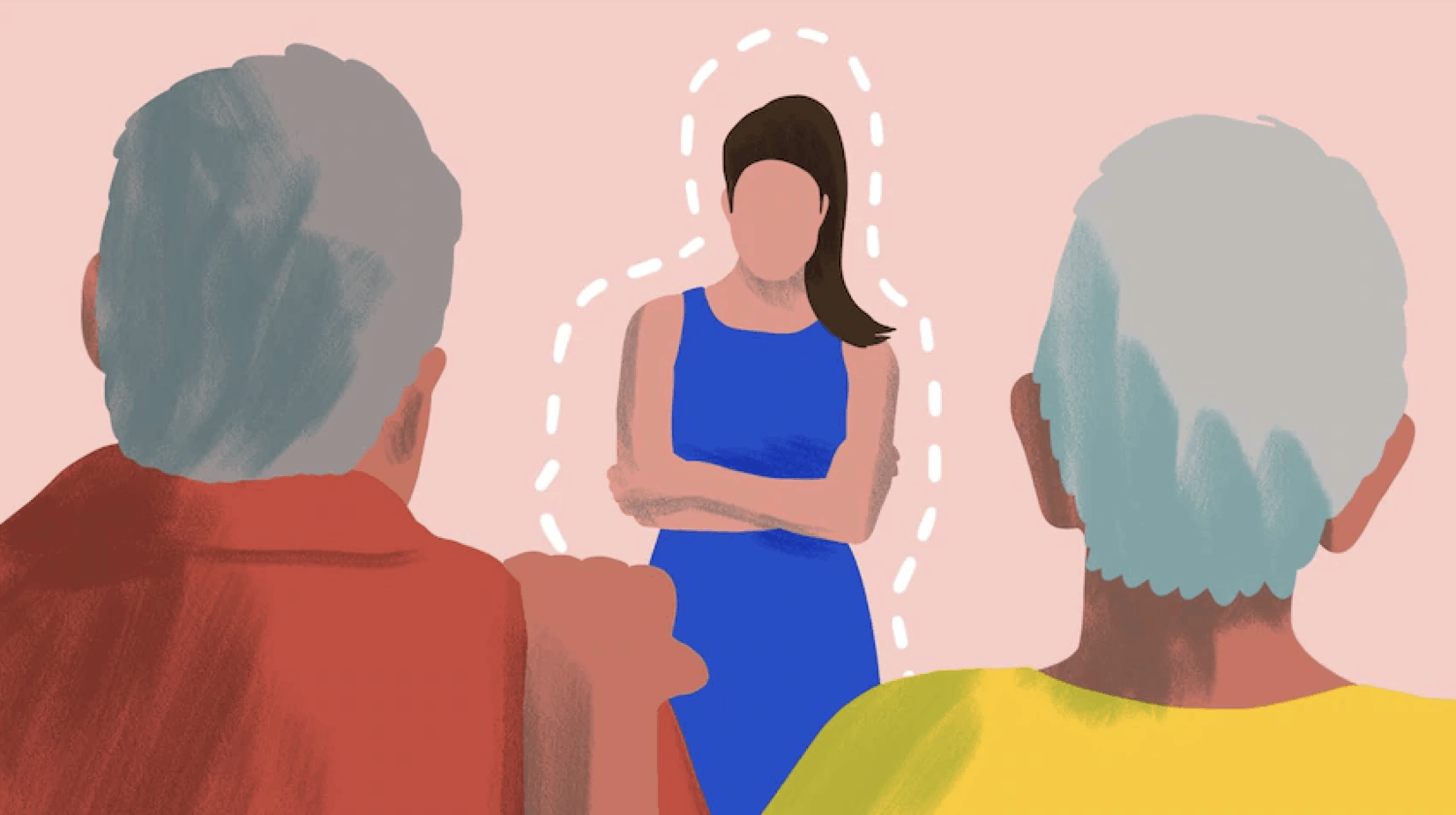In 2016, the number of people estimated to be suffering from mental health issues like depression and anxiety amounted to roughly 1.1 billion. Since then, numbers have likely continued to rise. Moreover, studies have also shown women especially on average are a) more likely to suffer from mental health issues, and b) less likely to talk about them. The taboo in Pakistan surrounding depression and anxiety disorders only serve to aggravate the individuals suffering even more. For the women who cannot seek out full time therapy, we’ve enlisted the help of a trained therapist. You sent us in your questions – here are the answers!

“I’m in my late 30s and single. I want to share that my family and siblings isolate me in every matter. My sister is getting married and they don’t make me part of any preparations and take pity on me. Please tell me how to cope with it. Whereas before I was always happy and excited, I have lost that part of my personality and don’t want to be part of any celebrations because I don’t want to see my family or society taking pity on me. Please help me cope with this.”

Shahrukh’s Response:
Dear Anon,
That sounds incredibly difficult and hurtful – I can only imagine how painful it must be to experience the feeling of being isolated by your family. Sometimes approaching this kind of situation comes with several steps that might feel challenging, but it might help you get to the root of the problem. Alternatively, we can also explore ways we can help you feel safer and grounded within yourself.
The Pain Of Familial Conflict
Your immediate family unit is generally your first point of contact in the world, and it also tends to serve as a blueprint for future relationships and connections formed with the external world, including the one that you have with yourself. There’s a certain level of weightage that your family can hold over you, and their actions would leave a mark in how you relate to the world around you. So, the question becomes: what can be done about it?
- Reflect on family dynamics: there might be a great deal of history here – one that might have been building up for some time – it may help to explore what might have transpired with your family in the past. Is it some old fight or resentment coming up? Is there something in your life that they might not be agreeing with? What do you imagine might be happening in that space? Try journaling your thoughts as you sit with whatever is coming up for you. You could even write a letter to them (you don’t have to send it to them if you don’t want to, but just for your own clarity and catharsis).
- Explore the possibility of having a dialogue with them: in a situation where you’re unsure of what might be happening, you might opt to have an open and honest conversation with them about what’s going on, and why they’re responding to you in a way that’s making you feel isolated. This might be a difficult conversation to have and it’s okay to feel that way. It might be easier to approach someone who you feel would be receptive and open to having a conversation about this, and would perhaps be able to give some insight as to what is happening.
- Seek out support from relationships outside the family: familial relationships can hit some really hard times, and when that happens, it might help to reach out to friends for some support, even if it’s just to take your mind off things, talk about what you’re experiencing or to remind yourself of your value and worth.

- You are a lot more than how your family is treating you right now: as stated earlier, Anon, there is a certain level of power that we tend to surrender to our family, yet an important lesson to learn is that you are an individual who is worthy, and who deserves to be celebrated. Nobody, no matter how well they know you, has the right to tell you otherwise.
- Remind yourself of your worth and avoid the trap of self-blame: in the face of difficult feelings and familial isolation, it’s easy to go directly towards self-blame and think that there’s something wrong with who you are, but that’s untrue. If you find yourself in that space of blame and negative core beliefs, try to step away from definitive statements like “I am bad” or “I am unlovable”. Perhaps saying “what’s happening is really challenging, and this will eventually pass” or “I will always be worthy/worthy of love.” Repeat these mantras to yourself as many times as you need to.
- It’s okay to distance yourself and walk away if they’re unwilling to talk things out or resolve them: whether it’s physically or just emotionally cutting off, you are allowed to walk away if you’re being treated unfairly by family. I am mindful of how society operates in this country, and that sometimes it’s not “acceptable” to distance yourself from family. That being said, it does not have to be that way for you if you don’t want it to be – look out for your needs as best as you can.
- Seek out the help of a therapist/counsellor: Anon, it might also help to explore this in therapy, and perhaps see what might be playing out with your family. Your therapist would be able to hold space for you as you reflect.
Anon, what you’re going through is extremely challenging, and I hear that. Remember that all you can really do is your part in all of this. Try to ask to see what’s happening, and if that’s not working, it’s no longer on you. If you feel that it’s not even worth the talk, then that’s okay too. See what feels right for you, because there’s really no right or wrong here. I hope that whatever happens, you’re able to find clarity and a sense of grounding within you. I wish you all the best on your journey towards healing. Best of luck and stay in your power!

The above article is written by Shahrukh Shahbaz Malik who is trained in humanistic integrative counselling at CPDD in the UK and currently has her own private practice in Karachi. The views expressed in this article are those of one expert. They do not necessarily represent the views of Mashion, nor do they represent the complete picture of the topic at hand. This article is for informational purposes only and is not a substitute for medical diagnosis, treatment or therapy.








What do you think?
You must be logged in to post a comment.